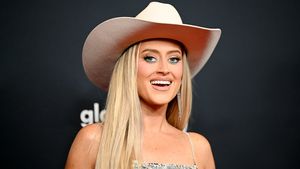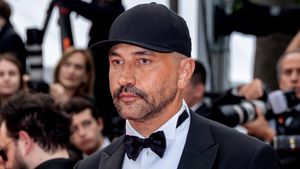This year marks my third attending Pride as an open, bisexual man. The first time I attended over two years ago was one of the first times I openly identified as bisexual to strangers. I wanted to test the waters, see how it felt using the label myself, and see how others would respond. It went very well. I got drunk, made out with some boys, and got a few numbers from men. It was a warm, positive, drunken experience, and I felt accepted.
The following year I went with my now ex-girlfriend. She, too, is bi and identifies as a trans man, but prefers female pronouns and presents herself traditionally feminine. She was less than excited to attend Pride, but I coaxed her into it. I promised her it would be fun to go with me. I even guilted her, calling her a Debbie Downer. She eventually (though reluctantly) agreed to go to Pride with me because she knew how important it was for me to be surrounded by other queer men and women. But because she had been out for nearly a decade, she didn’t necessarily feel the same urgency as I did.
I did my best to mollify her reservations. “Besides,” I said, “We’re who Pride is for. We’re queer as all hell. We’re bi. You’re trans. We should be the stars of the show!” She laughed, but I could hear it in her tone. She was nervous.
We attended Pride. I looked fabulous (if I do say so myself). I had my pink jean jorts on, and a muscle tank with a unicorn on it. It didn’t take long for the shirt to come off, and I was the subject of much wanted attention. I was loving life. Then the mood started to shift.
When we’d meet new men (because where we were hanging out at Pride seemed to be exclusively occupied by gay men), I’d introduce her as my girlfriend. We’d get a weird look, and some people would even tell me they thought I was gay. I’d clarify, and tell them we’re both bi. We were invited to some parties (or more accurately, I was invited to some parties, but of course I brought the love of my life along) and eventually the tipsy gay men evolved into drunken gay men whose whispers grew audible.
That’s when my girlfriend’s worries became a reality.
“He’s so cute. She knows her boyfriend is gay right?”
“Oh my god. He’s so gay. He doesn’t even know. That poor girl.”
The stares we received were filled with pity, not acceptance. And definitely not the open love I had expected to receive. My girlfriend melted into a puddle of water. Her trans identity was constantly called into question by the gay men there, due to her appearing more feminine, and her love for me was deemed desperate and foolish by all the gay men there. She felt invalidated by the one community she wanted to belong to most.
When the group of men we were with said they were all heading to the gay male block party, my girlfriend told me she wanted to go home. (Mind you, there were lesbian and gay block parties, but not a single one for people interested in more than one gender.) I told her I’d go home with her. I told her we didn’t have to go there. We could go anywhere she wanted. But she told me to stay and meant it. She knew staying was important for me and she wanted me to have a fun time. She knew I would have a better time if I was there without her. When I told her that wasn’t the case, she said she’d feel worse if she brought me down. She begged me to stay, so I did, despite my hesitation. I kissed her goodbye and kept partying with the gay crew, with her in the back of mind. The rest of the day was a blast. It was the Pride I was hoping for. But there was no way for me to enjoy Pride and feel like a part of the community with my girlfriend there. And there was no way for her to be there without (ironically) feeling worse about her sexuality and gender identity.
When we spoke about the whole experience the next day, I apologized. She was right. The experience is exactly what she thought it would be. She didn’t feel “gay enough.” She didn’t feel like a man. She didn’t feel accepted by the one community in the world that was supposed to welcome her with open arms.
Almost a year later, the time has come again: Pride. Or, as what a lot of people more commonly call it, Gay Pride. Because that's exactly what it is. A celebration of gay pride and gay pride alone. Transgender, bisexuality, and all the other identities are not (or barely) represented. One or two floats in a parade of dozens isn’t enough.
I’ve come to a sad realization: Pride just isn’t for me. It’s a shame, because it could be. I, and many other queer folk who don’t identify as straight and/or cisgender, have a hell of a lot to offer the LGBTQ+ community. We could also use the support and strength of the gay community. While the LGBTQ+ community preaches tolerance and inclusivity, it doesn’t always practice what it preaches. Simply put, Gay Pride is an extension of the homonormativity that has taken control of LGBTQ+ people. And I'm tired of it.
In the past five years, transgender visibility has drastically increased in the public eye. Queer POC are slowly starting to have a voice among the white, gay, cis men who have dominated the LGBTQ+ agenda, movement, and media for the past few decades. But despite these progressive pushes for more inclusivity in society's social consciousness, a lot of work still needs to be done. And the way I see it, I have three options in regards to my attendance at Gay Pride this year.
1. Make a statement and not go (something I really don’t want to do, especially since I think the statement will be lost, and since I do want to support the LGBTQ+ community).
2. Go with my now boyfriend, and let everyone assume I’m gay. We’d have a fabulous time, though a part of me would hate myself for hiding my sexuality at a place where I should feel comfortable celebrating it. (Again, not something I want to do.)
3. Go, and represent bisexuals everywhere. I can wear my “BISEXUAL AND STILL NOT INTO YOU” T-shirt and know that Pride, for me, will not be about drinking and celebrating. It will be work. It will be about increasing visibility for the sexualities and genders not proportionally represented in the LGBTQ+ community. This on the other hand, is something I want to do.
I hope one day I can go to Pride and be able to enjoy it without making a statement. I hope I can go, feel welcomed, be bisexual, and not feel like a stranger in my own home. Until then, if I have to fight to pull up a chair at the LGBTQ+ table, that’s exactly what I’ll do. Happy Queer Pride, everyone.






























































































































